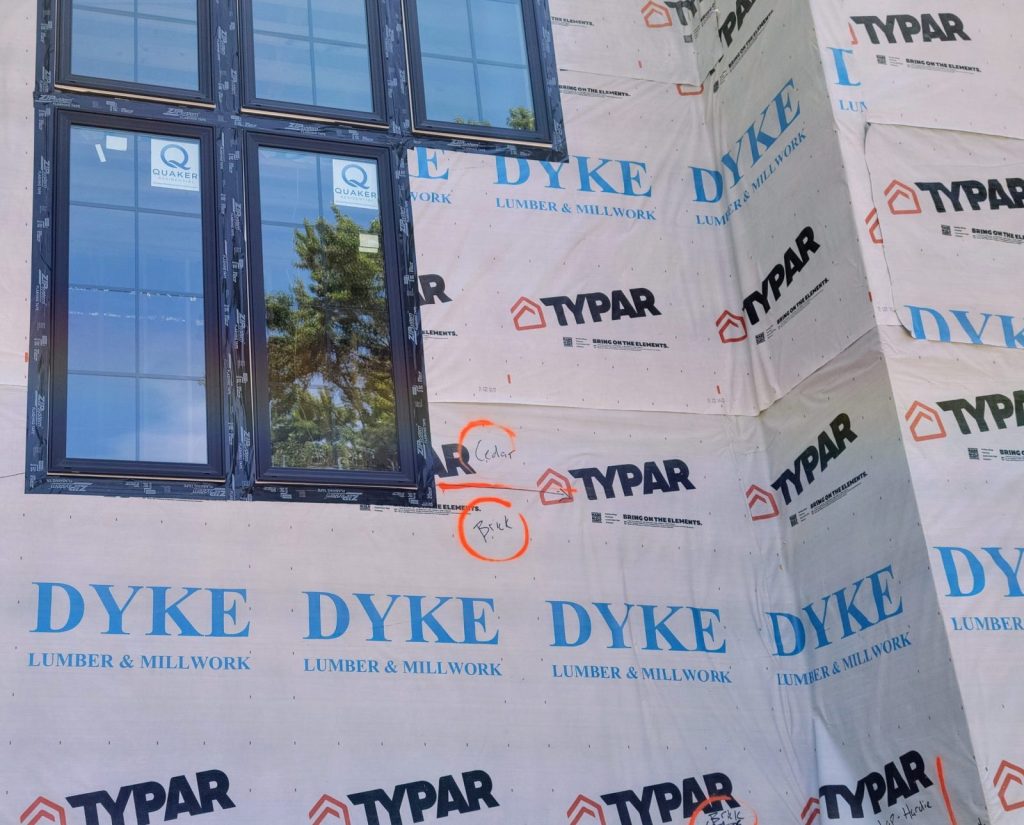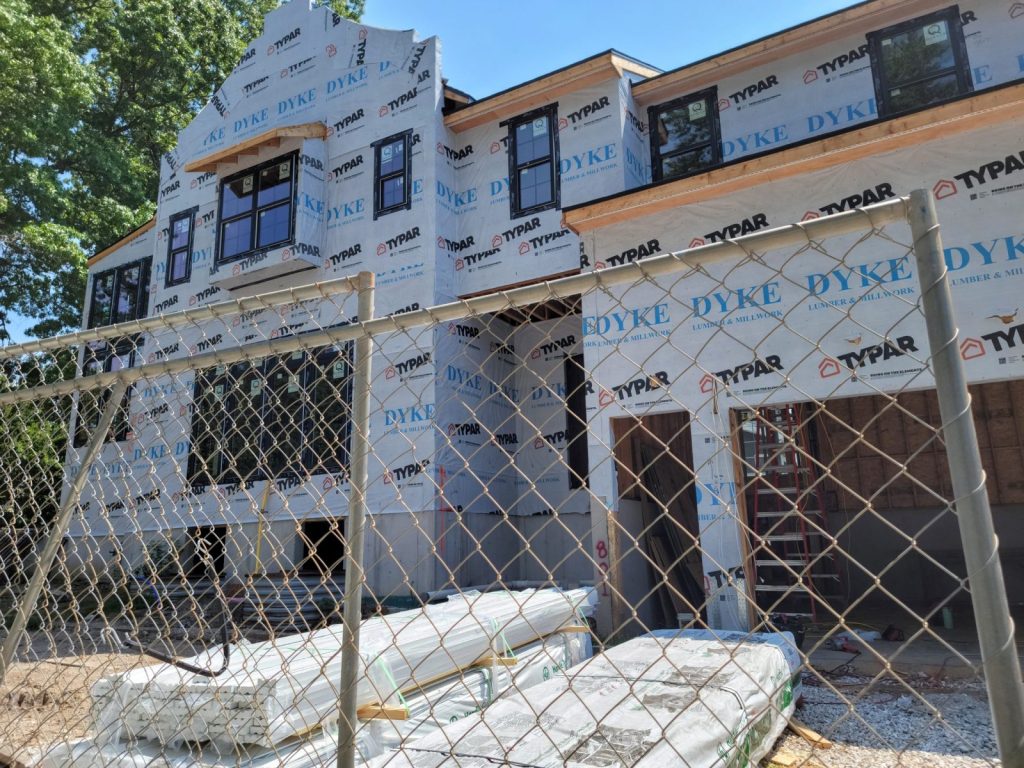Contractors and builders in Springfield will have new codes to adhere to when they apply for building permits beginning Jan. 1, 2023.
The Springfield City Council passed a bill to adopt the International Residential Building Code with some modifications related to energy efficiency on Aug. 8, by an 8-0 vote. The code change takes effect on New Year’s Day.
“The IRC is basically an all-inclusive book for building,” Springfield Interim Director of Building Services Brock Rowe said. “Unlike all of our commercial codes, you can take just the IRC and build a complete home. It covers electrical, mechanical, plumbing, energy efficiency, foundations — it even tells you how far you can span a rafter. It is a complete book.”
Rowe said the goal for the Springfield Building Development Services Department was to adopt a set of “the minimum requirements to build a safe house,” using the bulk of the International Residential Codes.
There are two key differences between the standard International Building Codes and Springfield’s version. The unedited energy-efficiency suggestion is to make floor insulation a requirement in residential buildings, but Springfield won’t have a floor insulation requirement. Air circulation requirements in a homes or apartments will also be less restrictive than the international code. (More on these changes later.)
Ten months of discussion

In May 2022, the Springfield City Council voted to adopt the 2018 International Building Codes for commercial buildings. The vote on Aug. 8 was a corresponding move to adopt a variation of the 2018 codes for residential buildings.
Staff members from the Springfield Department of Building and Development Services met with members of the Home Builders Association of Greater Springfield, the White River Group of the Sierra Club and the Springfield Citizens Advisory Committee for Community Development over 10 months of meetings and conversations.
Stephanie Stenger is a developer who spoke to the City Council at the end of July. Speaking as a developer, she said she felt the bill that passed Aug. 8 represented a good compromise between environmental and energy conservation concerns and the concerns of developers worried about facing burdens and expenses from code requirements. She commended Rowe for the dialogue.
“Brock has done a really good job of taking the time of meeting and going back and forth with every group, and getting to a point where we’re looking at both the building safety regulations and affordability of housing in our city,” Stenger said. “As we all know, that’s one of the biggest issues that we have right now.”
White River Group Chairperson Louise Wienckowski gave a written statement to the City Council on behalf of the Sierra Club.
“What we see in the proposed code is a template for quality homes in Springfield that are safe, resilient to weather extremes with healthier air and energy efficiency,” Wienckowski wrote. “Adopting this new code helps us meet challenges of today’s changing climate”
Both Stenger and Wienckowski agreed that code compliance will be important as Springfield continues a trend of population growth and residential development.
“In order to attract young professionals to Springfield, it’s essential that we offer a sustainable environment to live in, and energy efficient housing is one very critical element there,” Wienckowski wrote.
Stenger said it’s important for people to be able to afford to live and work in the same city.
“We want to be a community of choice, we want to be a community that has choice of housing because we’ve got to have housing for our workforce; we don’t want our workforce living around in the outskirts,” Stenger said.
Councilman Andy Lear commended the developers and the environmentalists for working together, and the BDS Department for working with all interested parties.
“I think it is an example of really good government to make this happen in a way that all parties were able to sign on, and I do think it advances us quite a way,” Lear said.
How Springfield codes are different

The key modifications include changing a requirement for fire suppression sprinklers so that sprinklers are required in cases where an apartment building or townhome includes five or more units connected together.
The Springfield code bill also removes a requirement for floor insulation. It simply doesn’t make sense in Southwest Missouri, Rowe said.
“In our area of the Ozarks, there is a lot of water, a lot of high water tables,” Rowe said. “You crawl into a crawl space around here, and you will see lots of mold, you will see lots of issues with water.”
Before he went to work for the city of Springfield, Rowe owned his own home inspection company, and he spent a great deal of time in crawl spaces. He encountered spiders, snakes and mold. Floor insulation can become a breeding ground for mold.
“If you insulate your floor cavities, it acts as a sponge, and it actually causes dry rot on your floor joists,” Rowe said. “Plus, most heat loss in a house is through its windows and its ceiling; it’s never through the floor. Most crawl spaces are like caves around here, they maintain a certain temperature. That’s why we put our water lines and our HVAC ducts through there, so they have a better chance of surviving in the cold temperatures.”
Springfield will have a testing requirement for air leakage rates, or the number of air exchanges a building experiences in an hour. An air exchange is defined as the rate at which outdoor air replaces indoor air in a building. A lower air exchange rate means a home’s HVAC system is more efficient and consumes less energy. Starting in 2023, the maximum allowable air exchange rate in homes drops from seven to five.
“We were at seven, and we are trying to get down to three, but we felt that five was a reasonable number to get to,” Rowe said.
An added section bans subsoil drains and sump pumps from discharging into city sewers. Other Springfield-specific modifications include some rules for electricians wiring garages and non-bedrooms in houses.
Councilman Craig Hosmer asked about continuing to evaluate code use for changes in the future.
“Are you going to gauge whether that’s something that we could modify in the future to make residential construction more efficient?” Hosmer asked during the meeting Aug. 8.
Rowe responded that the codes for the volume of air that escapes each building every hour will be evaluated over the next three years, and that a new version of the International Residential Codes is expected to come out in two years.
“We’re going to look at re-adopting the IRC when 2024 comes out, so that would probably be in 2025,” Rowe said.
Keeping up with the neighbors

Republic, Nixa and Ozark all use the 2018 International Residential Codes, although all three city governments in the suburbs modified the energy chapter to delete certain requirements. Greene and Christian counties use 2012 residential codes.
Chapter 11 is the energy section of the International Residential Code, and almost all of the municipalities in Missouri use the 2012 version of the energy chapter, or an even older version.
Springfield is the 51st city in Missouri to go to the 2018 International Residential Code.
“Twenty-one cities have adopted no international conservation codes whatsoever,” Rowe said.
St. Louis and Columbia use the 2018 International Residential Codes, but Kansas City uses the 2012 codes. According to Rowe’s research, Willard uses the 2012 codes.

